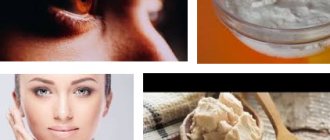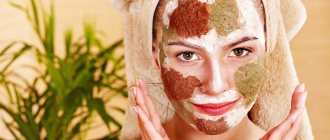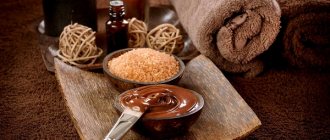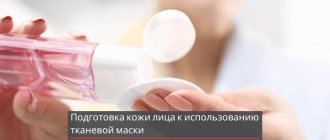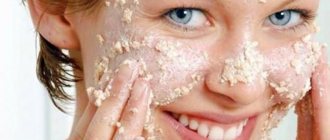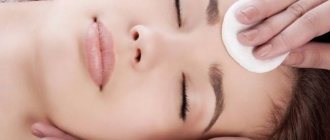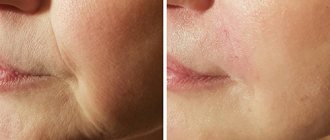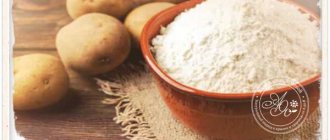Propolis is not only an indispensable assistant in traditional medicine recipes, but also an effective cosmetic product with which you can preserve the youth and beauty of your facial skin.
Due to its rich composition, it is able to quickly relieve inflammation, smooth out wrinkles and protect the skin from premature aging, so everyone needs to know what propolis masks are and how they can be used.
The benefits of propolis in cosmetology
The cosmetic effect of propolis lies in its composition. The product is based on essential oils, fatty acids, as well as natural resins, the spectrum of action of which is incredibly wide. Practice shows that with the help of propolis, which is also called “bee glue” (after all, bees initially began to produce it in order to use it as an adhesive substance and protect the hive from the harmful effects of environmental factors), you can get a strong anti-aging effect - smoothing out wrinkles , normalization of skin tone, as well as improvement of skin color. Moreover, scientists have found that the product contains substances such as coffee ester and pinocembrin - they provide a powerful antibacterial effect, which makes it possible to stop inflammatory processes that often occur on oily skin, and also improve the functioning of the sebaceous glands, which are very often caused by disorders. acne develops or blackheads simply appear.
Using propolis on the face in its pure form is extremely inconvenient, because its structure resembles plasticine. In cosmetology, it is used either in the form of a water- or alcohol-based tincture, or in the form of a cream or mask. Moreover, it is worth understanding here that the tincture is usually used to wipe the skin, and if it is prepared on the basis of alcohol, then it is best to use it for oily skin, because this preparation will dry out dry skin even more.
In order to understand how useful propolis is in cosmetology, it is worth understanding that it is capable of:
- restore and sometimes even activate the protective functions of the epidermis;
- help remove toxins and poisons from the deep layers of the dermis and thereby return the skin to a fresh look and radiance;
- provide a rejuvenating effect, which is primarily observed in smoothing facial wrinkles and preventing their appearance;
- protect the skin from premature aging;
- provide a high level of antioxidant protection;
- stimulate the production of collagen and elastin fibers in the deep layers of the dermis, which ensures the formation of a strong framework of the skin and prevents sagging of the soft tissues of the face;
- increases skin permeability;
- normalizes the elasticity of capillary walls, combats vascular fragility and the appearance of spider veins.
In addition, propolis is also useful for the skin due to its bactericidal, antifungal and antibacterial effects, which not only can be used to treat infectious or fungal diseases of the skin, but also as a preventive measure for their development.
Propolis tincture
First of all, propolis for facial skin is used in the form of a tincture, which is rich in useful components due to the fact that alcohol is an excellent extractant. The tincture can be made on a water, alcohol or even fatty basis.
The alcohol form of the medicinal substance is characterized by a rather specific aroma and is mainly recommended for the care of oily skin, because the alcohol itself slightly eavesdrops on the epidermis and enhances the antibacterial properties of bee glue.
You can buy preparations with propolis from us by calling one of the numbers:
+380984298830 +380955638797
Water tincture is less concentrated compared to alcohol tincture, but it cannot be called less effective. The difficulty here is that the aqueous form of propolis tincture must be prepared independently, because the shelf life of this medicine is quite short - only a week. There is nothing complicated in its preparation, because you just need to take natural propolis and dissolve it in water in a water bath. However, practice shows that propolis tincture for the face, prepared on the basis of alcohol, is still more convenient.
The oil form of tincture is the least common.
Usually, the base is some kind of fatty oil, into which, when heated, esters, vitamins and microelements from bee glue are transferred. Suitable for providing comprehensive skin care, moisturizing the epidermis and activating its regeneration processes.
Using propolis tincture for acne* in cosmetics
Honey and its derivatives have been used in medicine for a long time. Cosmetologists could not help but use their antibactericidal, antifungal and regenerating properties for their own purposes.
Therefore, in cosmetic stores you can find a huge number of creams for all skin types, lotions, lip balms and even mascaras containing propolis. For medicinal purposes, ointments, alcohol or aqueous-alcohol solutions of various consistencies are also used.
Products with honey can be used to care for problem skin, but acne treatment should be medicated and supervised by a dermatologist.
Alcohol tincture
Alcohol tincture of propolis for the face is sold ready-made or can be prepared independently. When preparing this drug, 10 grams of the active substance are added to 100 milliliters of alcohol. The bee glue must first be crushed, then placed in a dark glass bottle and filled with alcohol. Infusion time: 3-7 days with occasional shaking.
You can purchase the finished tincture at the family apiary “Veselyi Hornet”, whose specialists sell only high-quality preparations prepared in compliance with all technological aspects of preparing medicines based on bee products.
Based on the tincture, face masks with propolis are prepared, as well as products for wiping the skin - tonics and rubs.
How to make alcohol and water tincture at home
Propolis tincture for the face is more beneficial than honey, bee bread or other bee products. It contains 16 classes of organic compounds that improve the condition of the skin. Depending on the indications, homemade masks include propolis tincture in alcohol or water.
An alcohol-containing product is more suitable for problematic or oily skin, and an aqueous solution is more suitable for dry and sensitive skin.
Alcohol tincture recipe:
- 100 g of the substance is placed in the freezer for 1 hour;
- grind on a medium-sized grater;
- pour the shavings into a glass bottle or jar;
- pour a liter of 70% ethyl alcohol;
- insist in a dark and cool place for at least half a month.
Propolis water does not dissolve the lipid layer on the epidermis, therefore it does not have a drying effect. To prepare it you need:
- freeze 100 g of product in the freezer;
- grate;
- place in an enamel or glass container;
- pour distilled water in a ratio of 1:5;
- heat in a water bath for 1 hour;
- cool and refrigerate for 6 hours;
- strain the liquid through a paper filter or gauze folded in four.
Propolis does not dissolve well in an aqueous environment, so the resulting product is a 5% aqueous solution.
Cream with propolis
You can use propolis against wrinkles in the form of a cream, which is prepared on a fat basis. Vaseline or lanolin, beeswax, and sometimes animal fat are usually chosen as a base, and all the ingredients themselves promote the healing of skin wounds, provide hydration and protection of the epidermis. However, the main effect is still provided by “bee glue”, which smooths out wrinkles, activates the production of collagen and elastin fibers, thereby increasing the elasticity and tone of the dermis, and at the same time fights pigmentation and protects against free radicals.
Important!
Today, propolis cream is even used as a means of moisturizing and nourishing the skin after professional cosmetic procedures - peeling or cleansing, which undoubtedly only confirms the fact of its effectiveness.
Propolis lotions
Looking through reviews of propolis for the face, one cannot help but notice that it is recommended to use it as a lotion based on a tincture, which can effectively combat acne, purulent rashes, as well as disturbances in the functioning of the sebaceous glands, which manifests itself in excessive oiliness of the skin. It is recommended to do lotions as follows:
- 60 milliliters of a healing herbal decoction (chamomile or calendula) are mixed with 30 drops of propolis tincture;
- A cotton pad is moistened with the resulting solution, after which it must be applied to the problem area for 5 minutes or simply wiped over the skin of the face.
Here it is worth paying attention to the fact that propolis tincture in cosmetology can be used on a water and alcohol basis. Aqueous does not contain alcohol, which means its use is safer; alcohol is better suited for caring for oily skin, although when using it you must carefully monitor your body’s reaction and exposure time to prevent burns.
Other uses of propolis
Propolis is a universal product with pronounced medicinal properties, which is included in various cosmetics. It is used to make nourishing and antioxidant creams, tonics and lotions for wiping the face, compresses, and steam baths.
Lotions
Propolis lotion is an effective remedy against acne, greasy shine and wrinkles. To combat skin defects, different recipes are used:
- Recipe No. 1. Pour 1 tsp into 70 ml of calendula or chamomile infusion. propolis tinctures. Soak a cotton pad in the solution and apply it to problem areas for 10 minutes. Perform the procedure twice a day.
- Recipe No. 2. 2 tbsp. l. Heather is boiled in 100 ml of water for 2 minutes. Add 3 tsp to the decoction. propolis solution. Gauze soaked in liquid is applied to the face for 10 minutes.
After the procedure, cleanse the skin with herbal tonic. Finally, a cream with a gel texture is applied.
Ointment
Ointment or cream with propolis is a bactericidal agent that fights acne and heals wounds on the face. The following components are used as a base component:
- glycerol;
- cosmetic oil;
- petrolatum;
- animal fat;
- butter.
To prepare the ointment you need:
- mix the base component with propolis shavings in a ratio of 10:1;
- heat the product in a water bath until a homogeneous mass is obtained;
- cool and add a few drops of essential oil.
The ointment tones the skin, stimulates cellular metabolism and smoothes wrinkles. Apply every day before bed for 10 days.
Before using propolis cream or ointment, an allergy test is performed. They are applied to the wrist for 1 hour. If red spots or rashes appear on the skin, this indicates hypersensitivity to propolis.
Wiping the face
Tonics and lotions with propolis tincture are no less effective than homemade masks. They disinfect the skin, remove excess sebum, and increase gas exchange in cells. Apply after washing twice a day.
Tonic recipe:
- 3 tbsp. l. chamomile flowers are boiled in 300 ml of water for 5 minutes;
- the decoction is filtered;
- add 70 drops of propolis tincture.
It is recommended to store the finished product at temperatures up to 25°C. If you have acne on your face, take calendula or oregano instead of chamomile.
Homemade recipes for propolis face masks
Most often in home care, masks with propolis are used for the face, which are supplemented with other ingredients that enhance the main effects of bee glue. Additional ingredients may include butter or fatty oil, vinegar, eggs, other bee products, infusions and decoctions of medicinal herbs and plants, ampoule vitamins, and so on.
Mask recipes depend on what problem needs to be solved or what effect is obtained. However, if we summarize the information, we can see that in home care, masks are most often used that are aimed at combating signs of aging, moisturizing the skin and treating acne (pimples).
Who is not suitable for recipes containing bee products?
Honey, propolis, and bee bread contain a huge amount of bioactive substances, and therefore are highly allergenic. Dermatologists do not recommend using masks, creams and lotions with propolis for:
- contact dermatitis;
- open wounds on the skin;
- scaly lichen;
- tendency to allergic reactions;
- exacerbation of herpes;
- allergies to alcohol.
Photo: jlica.ru
If itching, burning or a blistering rash occurs while using cosmetics, you cannot continue to use the recipe. Undesirable reactions indicate individual intolerance to propolis components.
Cosmetics with bee glue are effective means for combating and preventing skin defects. Propolis contains more than two hundred beneficial substances that stimulate metabolism and protective functions of the skin. With regular use of masks, tonics and creams, wrinkles are smoothed out, facial tone is evened out, acne and age spots disappear.
Anti-wrinkle mask
A popular mask with propolis for wrinkles is prepared based on the active ingredient and coconut oil, which is sold in a pharmacy or supermarket. Preparing it is quite simple, because for this you just need to melt about 10 grams of coconut oil in a water bath and add 2 grams of natural propolis shavings to it. The ingredients are mixed under constant heating conditions, and the resulting mixture should be applied to the face after it has cooled and reached room temperature.
The mask is applied in a fairly thick layer over the entire surface of the face and neck (except for the area around the eyes), and after 30 minutes it is recommended to remove its remnants with a paper towel. It is not recommended to wash your face immediately after this procedure.
Acne mask
In cosmetics, propolis is often used as a mask for acne (due to its pronounced antibacterial and bactericidal effect).
This product allows you to quickly cleanse pores of impurities, remove toxins and normalize the functioning of the sebaceous glands. The mask is prepared on the basis of black bread and egg whites. You need to take one protein and mix it with 10 grams of black bread pulp, then add 20 grams of propolis tincture to the resulting mixture and apply the mixture to your face for 20-25 minutes. The remaining product is washed off with water at room temperature.
Important nuance!
It is best to take a lying position after applying a cosmetic product to the skin and leave the mask to work in this position, because then the effect of its use will be most pronounced.
An anti-acne mask with propolis is recommended for use at least two to three times a week - for treatment, or to prevent the development of acne - once every 7-10 days.
Is it possible to smear propolis* on acne?
The substances contained in propolis, honey or royal jelly are beneficial for the skin of the face, but they will not help get rid of acne*, since acne is a medical problem that needs to be treated with the use of medications prescribed by a dermatologist.
Propolis contains 164:
- vitamins;
- minerals;
- proteins;
- amino acids;
- enzymes;
- flavonoids.
Propolis tincture has anti-inflammatory and antifungal effects, but you should not use it at home to get rid of acne* on the face. To combat acne, there are special medications that are selected by a dermatologist in accordance with the patient’s clinical picture. Propolis helps improve skin condition and accelerates the healing of small wounds. This natural substance easily penetrates the skin, stimulates metabolic capabilities, nourishes and restores it.
Cosmetics containing honey have an antibacterial and sebum-regulating effect, while at the same time moisturizing and protecting the skin from premature aging, as well as ultraviolet radiation. Using propolis can gently soothe facial irritation by preventing bacterial growth, thereby helping the skin, but to get rid of acne*, medication must be used164.
But it should be remembered that beekeeping products are allergenic, so you should not prepare an alcoholic tincture of propolis or an anti-acne mask* with this ingredient at home; it is better to use a ready-made product after first testing for an allergic reaction. Apply a small amount of the composition to your wrist or elbow, if after 15-20 minutes no unpleasant sensations appear (itching, redness, rash), you can apply it to your face.
Anti-greasy mask with propolis
A mask with a tincture of propolis, wheat oil, and oatmeal will get rid of such problems as greasy shine. It gives the skin a matte appearance, normalizes the secretion of sebaceous secretions, and also softens the epidermis a little, so its use is recommended for people with oily skin.
The product is prepared as follows - two tablespoons of oatmeal are mixed with thermal water until a paste is formed, after which alcohol propolis tincture and wheat oil (half a teaspoon) are added to it.
The product is applied to pre-steamed facial skin for about 30 minutes, after which you need to wash with warm water.
Mask for dry skin
A nourishing homemade mask with propolis is prepared with the addition of aloe and cocoa extract, which quickly and effectively moisturize and nourish the skin, and also help get rid of redness and peeling that appears on the surface of the epidermis for various reasons.
To prepare the mask, you need to mix 20 milliliters of aqueous extract of aloe leaves with 1 gram of crushed propolis and put the resulting mixture in the refrigerator for 24 hours. After the specified period of time, 10 grams of cocoa powder is added to the mixture and it is applied to the face. The exposure time is 15 minutes, and to obtain a pronounced moisturizing effect, it is recommended to repeat it once every 3 days.
Mask with propolis and honey
A mask with propolis and honey deserves special attention, because the combination of these two bee products gives a pronounced rejuvenating, moisturizing and nourishing effect. The recipe for preparing the cosmetic product is simple, because you just need to mix 10 grams of honey with 2 milliliters of propolis tincture and a tablespoon of semolina. The product is applied to the face in a thick layer and the exposure time of the procedure is 30 minutes, after which you need to wash your face and apply a cream according to your skin type (you can use propolis).
Recipes for homemade masks with propolis
Bee glue is a multicomponent product that affects metabolism in skin cells. It is included in homemade face masks to prevent or eliminate defects. Unlike decorative cosmetics, it does not mask imperfections, but eliminates their cause - dehydration, hydrolipid balance, insufficiency of the sebaceous glands, etc.
For wrinkles
Beekeeping products have a lifting effect on the dermis and epidermis, smoothing out wrinkles on the face. To combat skin aging, make a propolis mask 2-3 times a week before bed.
Recipes for masks with a lifting effect:
- Classic. 2 g of bee glue is crushed on a grater, pour 1 tbsp. l. coconut oil Place in the microwave for 1 minute. The cooled mask is applied to clean skin of the face and neck for a quarter of an hour. Wash with distilled water, calamus or oregano decoction.
- Egg. Add 25 drops of alcohol tincture to 15 ml of olive oil. Mix 1 egg with white. Apply the product with a cosmetic brush for 15-20 minutes. Remove with cool mineral water or linden infusion.
Decorative cosmetics contain mineral oils and polymer additives that clog skin pores. Therefore, when using propolis masks for a course, you need to temporarily not wear makeup.
After washing, rub in a cream with a lifting effect based on hyaluronic or uric acid.
For acne
Propolis for the face is as useful as anti-acne ointments or creams. It disinfects the skin, dries out pustules and stimulates wound healing. Acne masks are used every day in courses of 7-10 days.
Anti-acne recipes:
- From honey. Mix 15 drops of propolis tincture and aloe juice. Pour in 15 ml of melted honey and 20 ml of warm boiled water. Keep the mask on for up to half an hour. Remove with warm decoction of linden or chamomile.
- From castor oil. Add 30 drops of an aqueous solution of propolis to 20 ml of castor oil. Mix with 2 tsp. white clay, heat in the microwave for 10 seconds. Apply the mask to problem areas or the entire face. After a quarter of an hour, wash with infusion of thyme or heather.
In case of severe acne, you need to lubricate the pimples with creams and ointments with azelaic acid - Aknestop, Skinoren, Acne-derm.
Against oily skin
Due to the increased activity of the sebaceous glands, oily shine, open comedones and acne appear on the face. To combat excess sebum production, use the following masks:
- Yeast. 10 g of dry yeast is poured into 30 ml of warm mineral water. After 20 minutes, 20 drops of propolis solution are introduced into the paste-like mass. Apply the mixture with a brush to clean skin. After half an hour, remove the mask with herbal decoction.
- Cottage cheese. 3 tbsp. l. crumbly cottage cheese is mixed with 20 ml of warm milk. 25 drops of alcohol tincture of propolis are dripped. Keep the mask on for no more than 15 minutes. Wash with distilled water or green tea.
For greasy shine, choose creams with adsorbing additives - mineral powder, starch, activated carbon.
Masks are made every other day for 2 weeks in a row. If after the procedure there is a feeling of skin tightening, the alcohol tincture is replaced with an aqueous solution.
For smoothing scars and scars
Propolis smoothes keloid scars, making them less noticeable. To eliminate defects, propolis cosmetics are used every day for 10 days. To prepare an anti-scar mask with your own hands, you need to take:
- 10 g wax;
- 15 ml olive oil;
- 5 g propolis;
- 3 drops of menthol oil.
Wax and propolis are grated. Melt the shavings in a water bath. Pour in sunflower and menthol oil. The mask is applied only to problem areas for a quarter of an hour. Remove with a cotton pad soaked in herbal tonic or green tea.
For dry and flaky skin
An exfoliating face mask with propolis cleanses the epidermis of dead cells and impurities. With regular care, sebum production increases, which creates a moisture-retaining barrier on the face.
Mask components:
- 1 g propolis;
- 10 g cocoa powder;
- 25 ml aloe juice.
Propolis is ground on a grater. Melt in a water bath and mix with the remaining ingredients. Apply the mask to the skin for 15 minutes. Wash off with herbal decoction. For skin dehydration, creams with glycerin and hyaluronic acid are used. Make a mask every other day for 1.5 weeks.
Nutritious
To compensate for the lack of nutrients, propolis is combined with fermented milk products and cereals. To prevent premature aging, masks are used 2-3 times a week in the morning or evening.
To even out skin tone, add 10 ml of freshly squeezed lemon juice to your home remedies.
Nutrient Recipes:
- With oatmeal. 2 tbsp. l. oatmeal is ground in a coffee grinder. Mix with 20 ml of warm milk. Add 30 drops of propolis solution. Keep the mask on for no more than half an hour. Wash off with infusion of coltsfoot, oregano or chamomile.
- With cottage cheese. Knead 20 g of cottage cheese with a fork. Dilute 30 ml of olive oil, pour in 1 tsp. propolis infusion. Apply the mask to damp skin for a quarter of an hour. Wash with mineral water or linden decoction.
If you are prone to allergic reactions, the procedure is performed no more than once every 3-4 days. After washing, moisturize the skin with hydrogel with collagen or elastin.
To improve skin color
Uneven complexion is a consequence of hypo- or hyperpigmentation. To even out the tone, use the following masks:
- Clay. 2 tbsp. l. white clay is diluted with 20 ml of milk. Pour in 1 tsp. aqueous solution of propolis, 10 ml of honey and 3-5 drops of tea tree oil. Treat the skin of the face and neck with the mixture. After a quarter of an hour, remove cosmetics with a warm infusion of chamomile or oak bark.
- Lemon. Add 15 drops of propolis tincture to 20 ml of lemon juice. Mix with 1 tbsp. l. homemade yogurt. Leave the mixture for up to 15 minutes. Wash with green tea.
Lemon masks are used 1-2 times a week. After the procedure, moisturize the facial skin with cream with kelp extract, urea or hyaluronate.
Cleansing (against blackheads)
Blackheads are oxidized fat plugs that form in the skin pores. To remove them you need:
- boil 2 tbsp. l. calendula flowers in 100 ml of water for 3 minutes;
- filter the broth through cheesecloth;
- mix 30 ml of liquid with 15 drops of propolis tincture;
- add 1 tbsp. l. red clay;
- apply cosmetics to dry skin for 20 minutes;
- wash with the remaining broth mixed with 200 ml of mineral water.
For oily skin, perform the procedure every evening for 1 week. To consolidate the effect, use a non-comedogenic day cream.
Rejuvenating mask
Any of the above propolis-based masks are suitable for use on the face against wrinkles, because to one degree or another they rejuvenate the skin. However, directly in order to obtain a pronounced rejuvenating effect, the mask is prepared on the basis of banana, which is rubbed through a sieve, yolk and propolis. The ingredients are mixed and a thick layer is applied to the face for about 50 minutes. The remnants of the product are washed off with warm water and to obtain the most noticeable results, it is recommended to repeat this procedure every day before going to bed.
Exfoliating mask
The least common use of propolis tincture in cosmetology is for the preparation of exfoliating masks. However, there is also such a preparation recipe - the mask is prepared using 25 drops of tincture, 10 grams of soda and 5 grams of sea salt, which is applied to pre-moistened skin. It is not recommended to leave the product on for a long time and it is not suitable for frequent use.
What are the benefits of propolis for facial skin?
Propolis in cosmetology is used as a multivitamin component with antioxidant, anti-inflammatory, bactericidal, lifting, and immunostimulating effects. Masks based on it have a beneficial effect on the condition of the skin:
- smooth out wrinkles;
- destroy bacteria;
- remove free radicals;
- dry out acne;
- even out skin tone;
- exfoliate dead cells;
- stimulate metabolism;
- heal microdamages.
Photo: 10dle.com
Propolis contains almost all the necessary trace elements, minerals, vitamins and amino acids, more than 1/3 of which are essential.
Small conclusion
Any propolis face mask will be useful, because the power of this beekeeping product is simply incredibly wide. In addition to the fact that there are the above recipes for preparing cosmetics based on this ingredient at home, there are also ready-made cosmetic masks produced in industrial quantities. Today, alginate masks with propolis are often found, which are used by cosmetologists in their professional activities, and Korean fabric propolis masks have also become especially popular, which only confirms the fact that the effectiveness of skin care with the help of preparations prepared on the basis of bee glue is as high as possible.
Sincerely, the family apiary "Veselyi Hornet"


